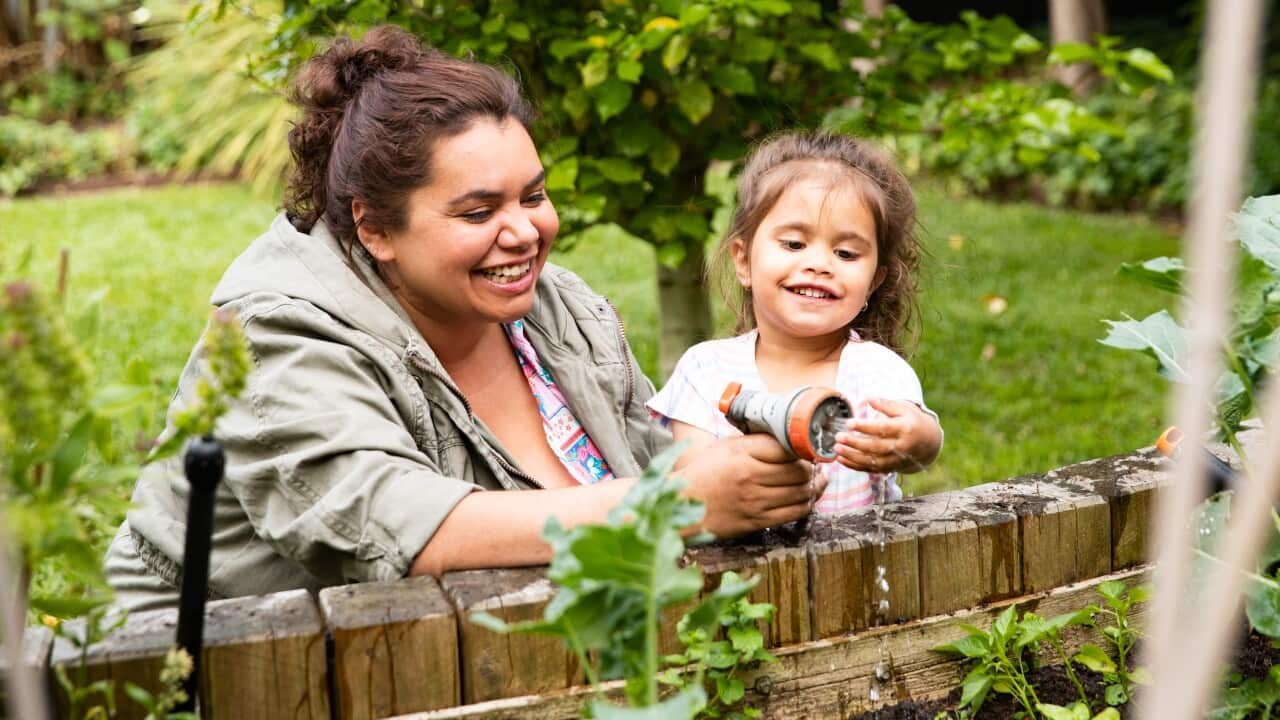yoo dhaggeeffattan afaan dubbachuu hubachuu fi Australia keessa yeroo jiraattanitti namootan hariiroo uummachuuf isin gargaara- hunda keessa deemtanii dhaggeeffachuuf -
Qophiin kun warra afaanitti giddu galeessa tahan gargaara. Ega dhaggeeffattanii booda dandeettii keessan of qoruu dandeessu.
Learning notes
Different phrases to use when we want to make predictions:
- When we want to guess what we think could happen:
I feel like... - When giving a clear answer is difficult, maybe because we don’t have enough information or things are unpredictable
It’s hard to say for sure but... - When we want to talk about a different way of thinking or considering things
On the other hand...
On the flip side... - When we want to suggest one way things might happen, while recognising that there could also be other ways.
It’s entirely possible... - When we believe that something will probably happen.
I wouldn't be at all surprised if...
Colloquial expressions:
We use, ‘come what may’ when we want to say that we're ready for anything. We can say to show that we are strong and positive, even when things may be uncertain or tough.
We use the expression ‘like there's no tomorrow’ when we want to do or enjoy something fully now. It means making the most of the moment.
Vocabulary:
To speculate means to make guesses about something even if you don’t have all the facts.
If you make predictions, you are guessing what might happen in the future based on the information you have.
We say something 'may,' happen if we think that it is possible, but we are not sure. When we are even less sure, we can say that it 'might' happen. We can also say that something 'could' happen if we think that it is possible but are not sure if it will.
Cultural information:
The Lunar New Year typically occurs between January 21 and February 20, with each year represented by an animal from the Chinese zodiac. For example, the year 2024 is the Year of the Dragon, starting on February 10.
Transcript:
(Note: This is not a word-for-word transcript)
SBS acknowledges the Traditional Custodians of Country and their connections and continuous care for the skies, lands and waterways throughout Australia.
Hi, it's Josipa here, and I’d like to share something very personal. Last year was tough – I separated from my partner, and now... well, I’m basically all on my own in this big, country far away from where I was born.
I won’t lie; I felt really sad quite a lot last year. But now, I’m ready to stop feeling sorry for myself. I’m ready to explore the adventure of a solo life again.
It’s like I’m in a big book, and each day is a new page waiting to be written. So, here I am, writing my own story, one day at a time.
And you know what? I’m actually excited about the possibilities that this year might bring, come what may.
Have you heard the expression ‘come what may’?
We use, ‘come what may’ when we want to say we're ready for whatever happens to us. It's about being strong and positive, even when things are uncertain or tough. It's like saying, "I'm ready for anything!"
So, join me in learning new expressions we can use when we need to speculate or make predictions about the future.
Both ‘speculate’ and predict’ mean to guess what will happen in the future. How are they different?
If you speculate, you are making guesses without evidence or facts.
If you predict something you can be a little more confident because have a little more information to help you guess what might happen.
Now, let’s hear how Allan and Clare speculate and make predictions. I wonder who they are talking about.
Allan
Hi Claire, have you talked to Josipa recently? I feel like she isn’t interested in falling in love anytime soon.
Claire
It's hard to say for sure, but because of what she’s been through, I don’t think that she’ll start a new relationship any time soon.
Allan
Yeah. On the other hand, there's just a chance she might meet someone wonderful out of the blue and her feelings could change. What's your guess?
Claire
It’s entirely possible that she finds romance when she least expects it. I wouldn't be at all surprised if she is open to the idea of a relationship if she meets the right person.
Josipa
Hearing Allan and Claire talk about me is weird, but they do have interesting thoughts on my love life! Luckily for me, we can now stop talking about me, and concentrate on practising English like there’s no tomorrow.
We use the expression ‘like there's no tomorrow’ when we want to do something to the best of our ability or enjoy something fully so that we make the most of the moment.
Anyway, Allan said,
I feel like she isn’t interested in falling in love anytime soon
You probably know the word ‘feel’. I feel happy. I feel like eating chocolate. But it can also be used when making predictions like Allan did.
Or, let me give you another example. I could make a prediction by saying, “I feel like the new Korean restaurant will become very popular.”
Let’s go back to our dialogue,
Claire
It's hard to say for sure, but because of what she’s been through, I don’t think that she’ll start a new relationship any time soon.
We say 'It's hard to say for sure' when it’s difficult for us to give a clear answer, maybe because we don’t have enough information or because things are just hard to predict.
We can use this phrase in its shorter version and just say, “It’s hard to say...”
For example, if I ask you, ‘is it going to rain tomorrow?’, you might say,
It’s hard to say, the forecast keeps changing.
Allan
On the other hand, there's just a chance she might meet someone wonderful out of the blue and her feelings could change.
We say something 'may,' happen if we think that it is possible but we are not sure.
When we are even less sure, we can say that it 'might' happen.
We can also say that something 'could' happen if we think that it is possible but are not sure if it will.
If something happens out of the blue, it means it happened suddenly and unexpectedly, without any warning.
And the phrase 'on the other hand' is useful when we want to talk about a different way of thinking or considering things.
There are a lot of other phrases we can use when we want to share a new idea or suggest another way of thinking about things.
For example, we can also use the phrase ‘on the flip side’ to say the same thing. And also the phrase ‘then again’.
We tend to use these phrases when we are thinking of suggestions that are the opposite of each other. For example, now that you are living in Australia you might go swimming more often, but then again, you might not.
There are many more English words we can use when expressing a different opinion, but, to go back to our dialogue, Claire said,
It’s entirely possible that she finds romance when she least expects it.
Claire
I wouldn’t be at all surprised if she just meets the right person and suddenly falls in love!
In this example, Claire used two expressions that can be very useful when we are speculating or making predictions: ‘it’s- entirely possible that and ‘I wouldn't be at all surprised if’.
We can use the phrase ‘it’s entirely possible that’ when we are speculating that something might happen and that we would not be surprised if it did.
So, we could say, for example, ‘The weather forecast for tomorrow is fine so we can go to the beach, but it’s entirely possible that it’ll rain, and we’ll have to stay in’.
We could also say,
I wouldn't be surprised if it rained.
SBS Cantonese special podcast on the zodiac fortune for 2024 Wood Dragon Year

行運一條龍:SBS 廣東話 2024 甲辰年生肖運程特備節目
A big thank you to our educational consultant, Professor Lynda Yates and our guest Peggy Tsoi .
Paul Nicholson and Lily O'Sullivan voiced the characters of Allan and Claire.






